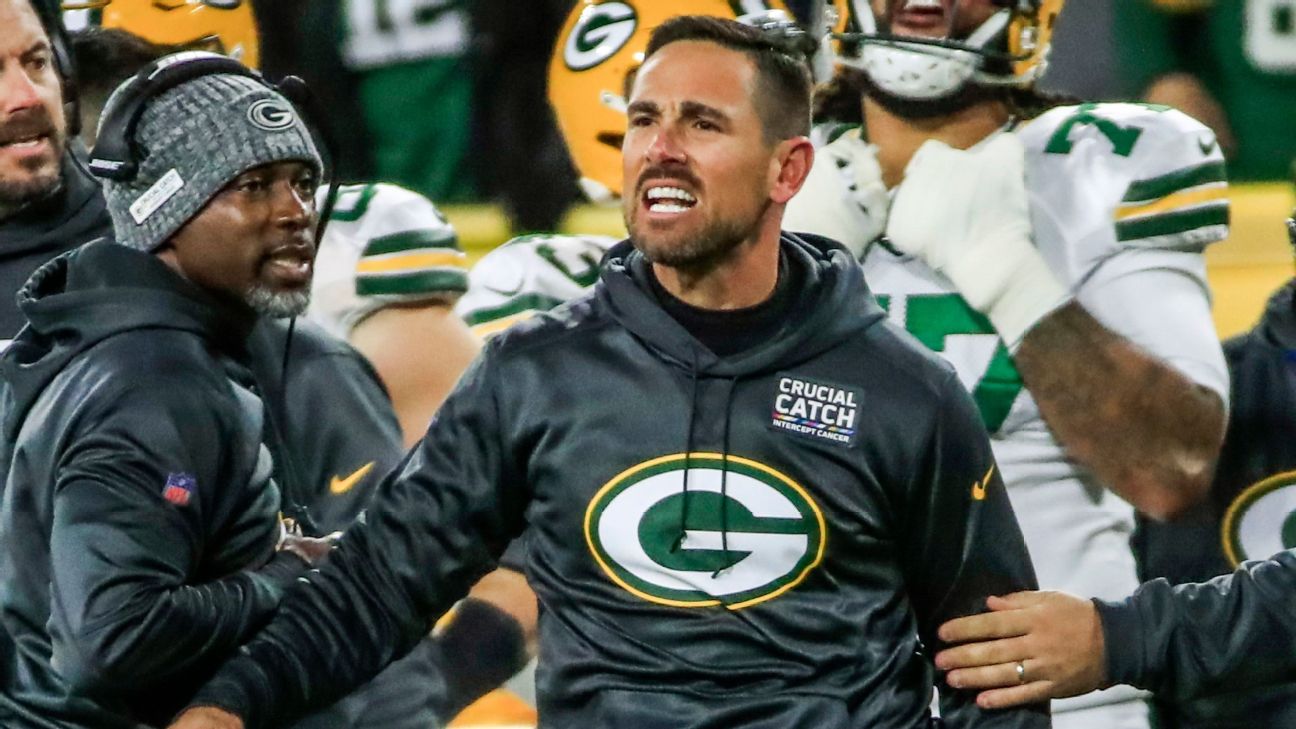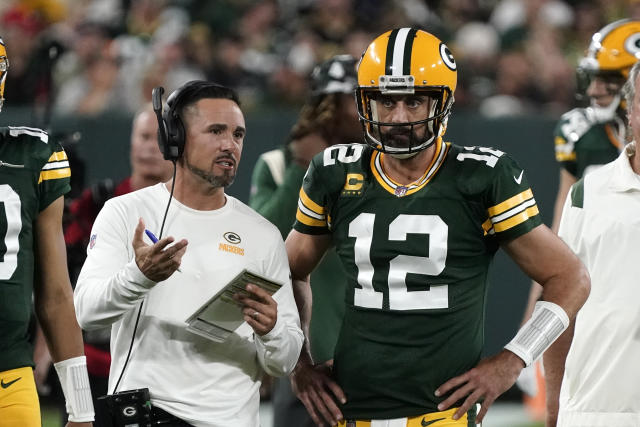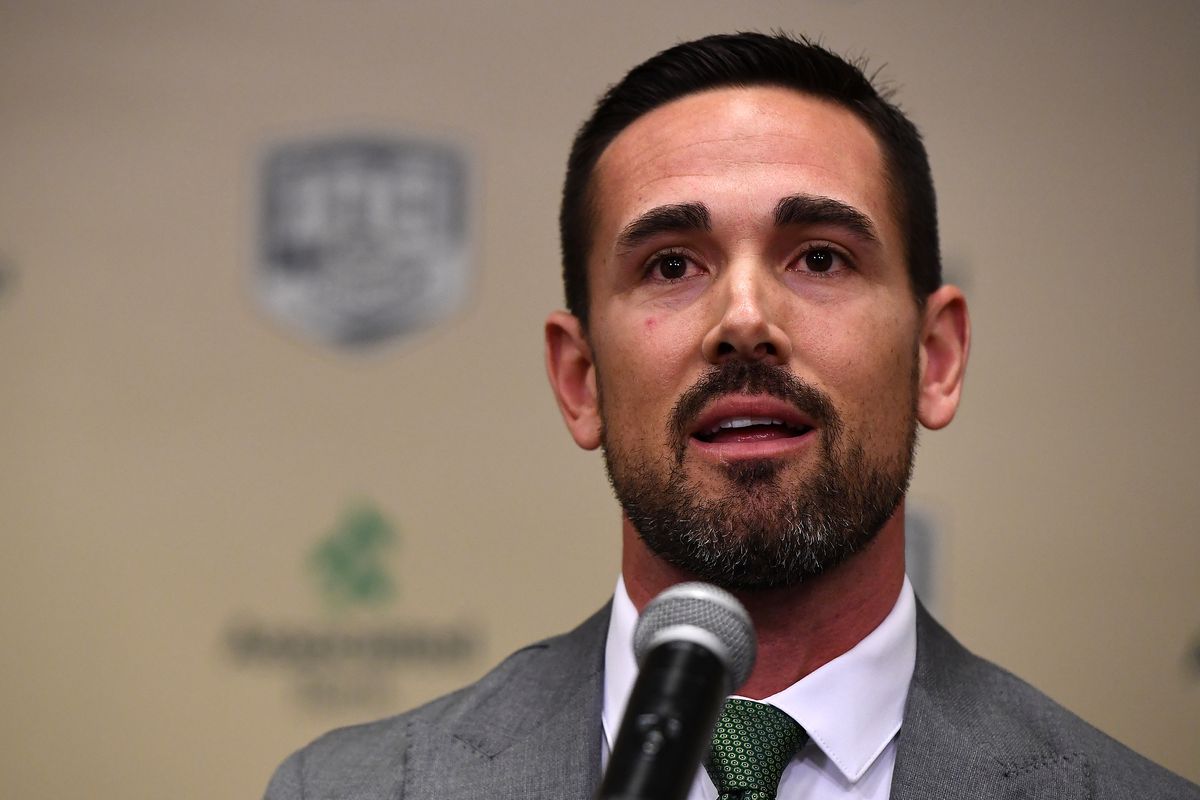Matt LaFleur Is Hurting His Reputation By Making Excuses For Joe Barry

The Green Bay Packers’ struggles continued in the aftermath of a dismal Monday night showing that left Green Bay’s defense in the crosshairs.
Baker Mayfield and the Tampa Bay Buccaneers exploited their vulnerabilities, torching the Packers with 381 yards through the air and four touchdowns. Mayfield finished with a flawless passer rating, which is unprecedented for a quarterback visiting Lambeau Field.
Despite Joe Barry’s defensive schemes showcasing resilience against elite opponents like the Detroit Lions and the Kansas City Chiefs, a disconcerting pattern emerges when facing less-explosive offenses. Since the start of last year, the Packers’ defense faltered against quarterbacks like Daniel Jones, Zach Wilson, Bailey Zappe, Taylor Heinicke, Desmond Ridder, Kenny Pickett, Tommy DeVito, and now Mayfield, allowing them to achieve career-best performances.
A troubling pattern has emerged in Matt LaFleur’s post-loss press conferences. The defense often seems incapable of stopping opposing offenses and inevitably takes center stage. But LaFleur consistently adopts a commendable stance, deflecting blame towards himself and expressing accountability for the team’s shortcomings. While the willingness of a coach to assume responsibility is appreciated, this recurrent narrative has inadvertently become a shield for Barry’s underachievements.
LaFleur’s trust in Barry has been rewarded with some notable successes. The Packers have earned the No. 1 seed in the NFC with him as defensive coordinator. Barry’s unit also held the San Francisco 49ers to only six points in the divisional round two years ago, and Green Bay was only a game away from the playoffs last season. But the Packers’ recent defensive performances have raised concerns. They underscore a pattern where the lows of Green Bay’s defense significantly outweigh the highs. Some success can be attributed to opponents’ mistakes, but the Packers have consistently struggled to assert defensive dominance.
Green Bay’s pass defense has displayed vulnerability, particularly when facing medium-to-long situations on third and fourth down, where opponents consistently exploit their lapses. The Packers’ success often hinges on opposing offenses committing penalties or the pass rush securing a sack.
But there are instances like the Week 2 matchup against the Atlanta Falcons, where Desmond Ridder converted a third-and-15 deep in his territory, or the Los Angeles Chargers game, where Justin Herbert swiftly advanced to the red zone with only two pass attempts. The Kansas City Chiefs faced third-and-18 when Green Bay’s defense failed to prevent a completion to Marquez Valdes-Scantling, who was uncovered over the middle. Mayfield picked up 24 yards on second-and-long against Barry’s defense.
Green Bay’s defense has failed to meet expectations despite boasting a front seven with four first-rounders, Eric Stokes’ return, and the potential impact of a healthy Jaire Alexander. The team possesses the individual talent to be a top-10 defensive unit, but they have collectively underachieved. The struggles become more glaring compared to defenses with seemingly less talent, like the Las Vegas Raiders, New York Giants, and Minnesota Vikings, who have produced better results. The Packers have lost to each of those teams, exacerbating the issue.
LaFleur’s persistence in retaining Barry as the defensive coordinator has created consternation, given Barry’s concerning track record in previous coaching stints. Barry called the defensive plays for the infamous 0-16 Detroit Lions in 2008. Moreover, his tenures as a defensive coordinator in Detroit and Washington were marred by consistently poor rankings in defensive efficiency, as reflected by DVOA metrics.
Opposing offenses expose vulnerabilities in Barry’s passive schemes, generating significant gains on the ground and through the air. While Barry’s defensive design emphasizes bending without breaking, opponents have found consistent success breaking through at all levels of the field. Barry’s willingness to allow ground yards has not translated into the desired resilience; Green Bay’s defense faces repeated breakdowns. Whether it’s chunk yards through the air or ground attacks, Barry’s defensive plans have fallen short of their intended purpose.



